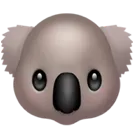.jpeg)
Chicks come into care for many reasons. The adult bird may have been killed or abandoned the nest, the chick may be sick or injured and therefore rejected by its parents, but most chicks come into care because they have been "chick-napped". Whilst people have the best of intentions, a large percentage of chicks that come into care have now been stolen from their parents and their chances on survival in the wild have been dramatically diminished.
Our carers do everything they can for these chicks, but nothing can replicate the social bonding and natural instincts of parent birds. These chicks that are then raised in care, can go on to be released and survive, but miss out on crucial lessons from their own species and unfortunately will never learn them. This is why it is of great importance to make sure you know the species of bird to understand if it can be left alone as it is normal fledgling behavior or needs help as it is far too young to be on the ground. Always call your local wildlife group who can help you ID the bird species and give you the best possible advice for the chick.
• Species that fledge and are tended by the parents on the ground: Magpies, Masked Lapwings (Plovers) and Noisy Miners (for a short time).
• Species that fledge and stay in the trees: Kookaburras, Currawongs, Ravens, Butcherbirds, Lorikeets, Cockatoos, Wattlebirds
• If you find any chick that has its eyes closed and mostly pink skin, this chick needs immediate rescue and care. Call your local wildlife organisation.
• If the chick is shaking uncontrollably and looks visibly unwell, it needs to be rescued.
• If you see some dead adult birds and chicks nearby, this chick may also be at risk from domestic pets and needs to be rescued.
• If there has been a storm recently and you find a wet and cold chick, it may just need to be taken in until the storm passes and it warms up. Call your local wildlife organisation to get further advice. If you are taking it far from the original location, make sure you remember exactly where you picked it up from.
• When chicks are in their fledgling stage, a few species will encourage their young to leave the nest in order to learn how to fly and forage for food, the parents will be nearby supervising. Most people assume that this bird is in need of help, it is not.
• People also become concerned that a domestic pet can get to the chick, this is now unfortunately a reality our native animal wildlife need to live with. Every healthy chick cannot be removed just in case something may or may not happen to it. The exception to this is if you can visibly see a cat stalking the chick.
• If a chick is in need of a rescue, handle it as little as possible to prevent injury and further stress. It is a myth that parents reject a baby handled by humans.
• Place the chick in a cardboard box with ventilation, preferably lined with a a tea towel and organise a rescue with your local wildlife organisation.
• NEVER give a chick food or water.
• If you find a chick that shouldn't be out of the nest but is uninjured, try to identify the parent birds and find the nest. Always try to place the chick back in their nest or as close as you possibly can.
• Construct a makeshift nest if necessary – a small box or plastic container like an ice cream container will work. Ensure it has drainage holes. Put dried leaves, grass and twigs in the bottom.
• Attach the nest in a tree as close as possible to where the chick was found. Check if the parents come to feed it in your nest, over the next few hours. If they don’t, or if the chick is showing signs of illness, injury, weakening condition, or if other birds attack the chick, you may need to take it to a vet or call the local wildlife group.


